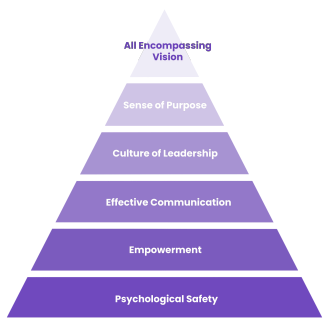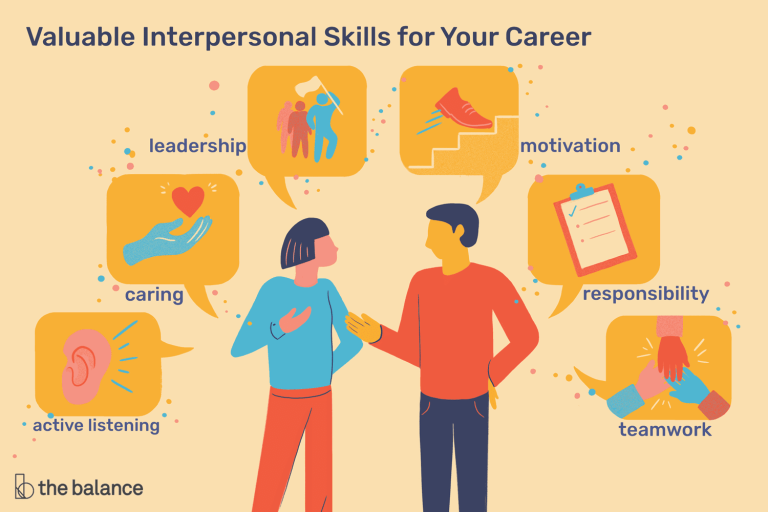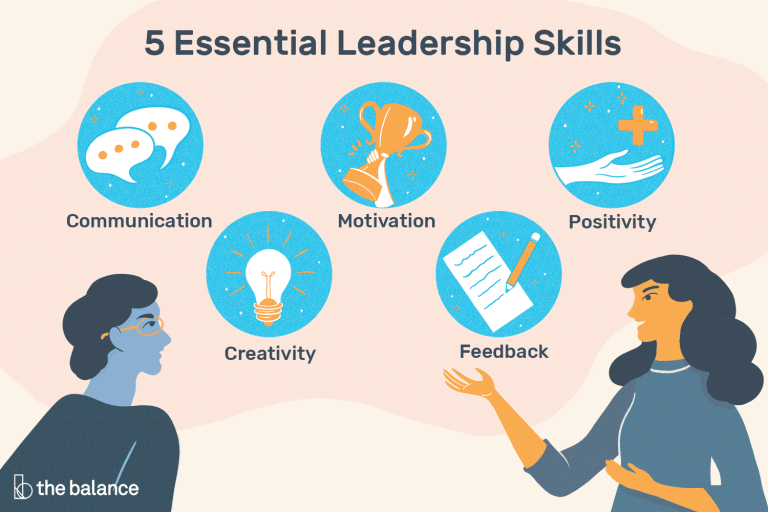How to Handle Opposition At Work (Argue Professionally With Someone Who Disagrees With You)
To handle opposition at work, listen actively and respond respectfully. Focus on facts and seek common ground.
Dealing with disagreements at work is inevitable. Professionalism is key to resolving conflicts and maintaining a positive workplace environment. Always approach disagreements with a calm demeanor and a willingness to understand the other person’s perspective. Active listening helps in acknowledging their points, which in turn, fosters mutual respect.
Be concise and clear when presenting your viewpoint, sticking to facts and evidence. Collaborative problem-solving can turn opposition into productive discussions, benefiting the team as a whole. Building these skills not only resolves conflicts but also enhances your reputation as a professional.
Understanding Opposition
Facing opposition at work is common. Understanding it is crucial. Knowing why someone disagrees helps you address the root cause. Handling opposition professionally ensures a healthy work environment.
Common Causes
| Cause | Description |
|---|---|
| Miscommunication | Messages are misunderstood or not clear. |
| Different Perspectives | Team members have varying viewpoints. |
| Stress | High pressure leads to conflicts. |
| Competition | Desire to outperform colleagues. |
| Personal Issues | Outside problems affect work behavior. |
Recognizing Opposition
Recognizing opposition early helps in addressing it. Signs of opposition include:
- Frequent disagreements in meetings.
- Negative body language.
- Consistent refusal to collaborate.
- Hostile or dismissive comments.
- Persistent questioning of decisions.
Identifying these signs is the first step. It allows you to engage constructively. Approach the situation calmly and openly. Listen actively to understand the other person’s viewpoint.
Opposition isn’t always negative. It can lead to better solutions. Embrace it as a chance to improve and learn.
Preparing For Opposition
Facing opposition at work is inevitable. How you handle it matters. Preparing for opposition is crucial. You need to be ready. This section will guide you. We will cover Research and Facts and Emotional Readiness. These are key steps to handle disagreements professionally.
Research And Facts
Begin with solid research. Gather data and evidence. Facts are your best allies. They support your arguments. They make your case strong.
- Look for reliable sources.
- Collect relevant statistics.
- Note down key points.
- Prepare to present them clearly.
Organize your information. Use tables if needed. This makes it easier to understand.
| Source | Key Point |
|---|---|
| Market Research | Increasing demand for product X |
| Customer Survey | 85% satisfaction rate |
Your arguments will be solid with good research. Your opponent will respect your preparation.
Emotional Readiness
Emotional readiness is as important as research. Stay calm and composed. Your emotions can influence the discussion. Keep them in check.
- Practice deep breathing.
- Stay positive.
- Don’t take it personally.
- Be respectful and polite.
Control your reactions. Listen actively. Understand the other person’s view. Respond thoughtfully.
Emotional readiness shows maturity. It can turn a heated argument into a productive discussion.
Effective Communication
Effective communication is key to handling opposition at work. It allows for a healthy exchange of ideas and helps in resolving conflicts. This section will focus on two important aspects: Active Listening and Clear Expression.
Active Listening
Active listening is more than just hearing words. It involves paying full attention to the speaker. Here are some tips to master active listening:
- Maintain eye contact: This shows you’re engaged.
- Nod occasionally: It indicates you’re following along.
- Avoid interrupting: Let the other person finish speaking.
- Ask questions: Clarify any doubts you have.
- Summarize points: Repeat back what you’ve heard to confirm understanding.
Clear Expression
Clear expression helps convey your thoughts effectively. Here’s how to do it:
- Use simple language: Avoid jargon and complex words.
- Be concise: Get to the point quickly.
- Stay calm: Keep your tone even and composed.
- Use “I” statements: Talk about your own feelings and thoughts.
- Provide examples: Illustrate your points with real-life examples.
Following these tips for active listening and clear expression will help you argue professionally at work. It ensures that your disagreements are productive and respectful.
Building Empathy
Building empathy is essential when handling opposition at work. It helps create a better understanding and reduces conflicts. By seeing the other person’s perspective, you can communicate more effectively and find common ground. This way, you can argue professionally and maintain a positive work environment.
Seeing Their Perspective
To understand someone else’s point of view, try to put yourself in their shoes. Listen actively to their concerns and acknowledge their feelings. Ask questions to clarify their position. This shows respect and helps you grasp their reasoning.
- Listen actively to their words and body language.
- Ask questions to understand their viewpoint better.
- Acknowledge their feelings and concerns.
Finding Common Ground
Identifying common goals can help bridge the gap between opposing views. Look for shared interests and values. This can make collaboration easier and more productive.
| Steps | Actions |
|---|---|
| Identify shared goals | Find mutual objectives that both sides agree on. |
| Highlight common values | Emphasize what both parties care about equally. |
| Work together | Collaborate to achieve these shared goals. |
Finding common ground helps build trust and cooperation. It makes resolving conflicts easier and more effective.
Staying Professional
Handling opposition at work can be challenging. It’s crucial to remain professional. Staying professional shows maturity and respect. It helps in maintaining a healthy work environment. Below are essential strategies for staying professional.
Maintaining Composure
Keeping calm is key during disagreements. Take deep breaths before responding. Speak in a calm tone. Avoid raising your voice. Staying calm helps in thinking clearly. It also prevents misunderstandings. If you feel overwhelmed, take a short break. Return with a clear mind. Always aim for a rational discussion.
Avoiding Personal Attacks
Focus on the issue, not the person. Personal attacks can escalate conflicts. They damage relationships. Use “I” statements instead of “You” statements. For example:
| Instead of Saying | Say |
|---|---|
| “You always interrupt me.” | “I feel interrupted when I’m talking.” |
| “You’re wrong.” | “I see it differently.” |
This approach reduces defensiveness. It fosters constructive dialogue. Focus on finding solutions. Avoid blaming or shaming. This keeps the discussion productive.
Using Persuasion Techniques
In the workplace, disagreements are inevitable. Handling opposition professionally can foster growth. One effective method is using persuasion techniques. This approach helps you argue professionally and maintain a respectful environment.
Logical Arguments
Logical arguments rely on facts and evidence. Present clear data to support your point. Use statistics, research, and case studies. Ensure your information is up-to-date and credible.
- State your claim: Clearly articulate your main point.
- Provide evidence: Support your claim with strong evidence.
- Explain the relevance: Show how the evidence supports your claim.
Logical arguments help you stay objective. This approach reduces emotional tension.
Emotional Appeals
Emotional appeals aim to connect on a personal level. Use stories and examples that resonate emotionally. This technique can make your argument more relatable.
- Tell a story: Share a personal or relatable story.
- Use vivid language: Choose words that evoke emotions.
- Appeal to values: Align your argument with shared values.
Emotional appeals can be powerful. They make your message memorable.
| Technique | Best Use |
|---|---|
| Logical Arguments | When facts are crucial |
| Emotional Appeals | When you need to connect personally |
Combining both techniques can be effective. Use logical arguments for credibility. Use emotional appeals for engagement.
Seeking Mediation
Seeking mediation can be a vital step in resolving conflicts at work. Sometimes, direct communication fails to resolve the disagreement. In such cases, involving a neutral third party can help. Mediation ensures that both parties feel heard and understood. This process can lead to a more harmonious workplace.
When To Involve A Third Party
Knowing when to involve a third party is crucial. If the conflict is escalating, it’s a good time. Also, if both parties are unable to communicate effectively, mediation is needed. Another sign is if the disagreement affects team productivity. Lastly, if personal attacks start, mediation is necessary.
Choosing A Mediator
Choosing a mediator involves careful consideration. The mediator should be neutral and unbiased. Ideally, they have experience in conflict resolution. It’s also good if they know the work culture and policies. Finally, trust is essential; both parties should agree on the mediator.
| Criteria | Details |
|---|---|
| Neutrality | Must not favor any party |
| Experience | Should have conflict resolution skills |
| Knowledge | Familiar with workplace policies |
| Trust | Both parties should agree |
By seeking mediation, you take a proactive step. This approach can resolve conflicts effectively. It promotes a positive work environment.
Learning And Growing
Handling opposition at work can be challenging. It’s a chance to learn and grow professionally. The experience can help you develop better communication skills. It can also improve your ability to handle conflicts.
Reflecting On The Experience
After an argument, take time to reflect. Think about what happened and why. Consider your feelings and those of the other person. Reflect on what you said and how you said it.
- Did you stay calm?
- Were you respectful?
- Did you listen actively?
Understanding these points can help you identify areas for improvement. It can also help you recognize your strengths.
Improving Future Interactions
Use your reflections to improve future interactions. Practice staying calm during disagreements. Develop techniques to listen better. Being an active listener can reduce misunderstandings.
- Take deep breaths to stay calm.
- Repeat back what you hear.
- Ask questions to clarify points.
These steps can help you handle opposition more effectively. They can also make your workplace more harmonious.
Frequently Asked Questions
How Can I Professionally Disagree At Work?
Stay calm, listen actively, and express your views respectfully. Use facts and focus on solutions.
What Should I Avoid In Workplace Arguments?
Avoid personal attacks, emotional outbursts, and interrupting. Stick to the issue and maintain professionalism.
How Do I Handle Persistent Opposition?
Acknowledge their points, find common ground, and suggest a compromise. Stay open-minded and patient.
Conclusion
Mastering professional disagreement at work is essential. Stay calm, listen actively, and communicate clearly. Respect differing opinions and seek common ground. Enhancing these skills can lead to better teamwork and a more harmonious workplace. Apply these strategies to handle opposition effectively and foster positive relationships with colleagues.



